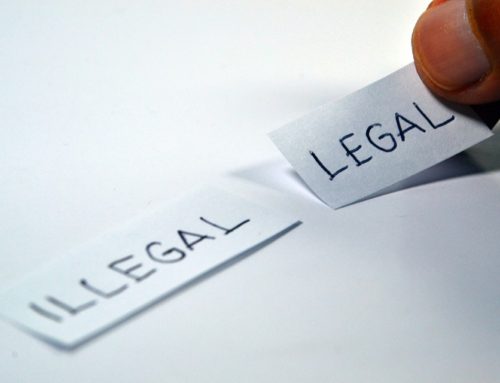If you’re interested in becoming a lawyer, or if you’ve ever looked into what it takes to become one, you’ve probably heard of the bar exam – or maybe you haven’t. Whether you’re a future student of law or just now learning what lawyers do, there’s a lot to unpack to completely understand the exam. So, for anyone wanting to learn more, here are five helpful things to understand about the Utah Bar Examination.
1) What is the Bar Exam?
Utah has adopted the Uniform Bar Exam (UBE), which is the same exam used in almost every U.S. state. The bar exam is used to determine if someone is qualified to practice law in a given state. In most states, including Utah, candidates have to graduate from law school before taking the bar exam.
That’s simple enough, right? Pass the exam and you’re qualified to be a lawyer. Well, it may be easier said than done.
2) What Does the Bar Exam Cover?
Before anyone gets to even try taking the exam, they must apply first. In Utah, it may take up to six months for the application to process. Once your application has been accepted, there are two parts to the exam completed over two days.
The first day is designated to written essay questions, which take about six hours to complete. The second day will cover 200 multiple-choice questions, which are also completed over a six-hour period. Essay and test questions cover everything from the Federal Rules of Civil Procedure (FRCP) to recognizing and solving ethical dilemmas and much more!
3) How Does Scoring Work?

For states that use the Uniform Bar Exam, the essay and multiple-choice sections are scaled so that they’re worth 200 points each. The points from each section are added together for a maximum possible score of 400.
The exam is pass/fail only, meaning any score with a passing point total is equal! The scoring system is the same across the country, but the passing grade for each state is different. In Utah, the passing score is 270. Over 78% of people who have taken the Utah bar exam in recent years achieved the passing score, giving Utah one of the highest pass rates of any state!
4) What Study Resources Are Available?
Although the Utah State Bar doesn’t officially endorse any bar review courses, anyone prepping for the exam can choose from several available resources. Since the exam can be different in each state, always ensure you choose study materials specifically for the exam in your state.
Different study resources may include:
- Professional bar preparation courses, taught by law professors
- Study books, including pre-prepared outlines, previously used questions, and other self-study helpers
- Private tutoring, particularly if you are looking for individual assistance or a more narrowed focus on a specific area of law
Besides studying for the exam, you will also need to bring a laptop and pay the $200 fee. Tip: Don’t try to bring anything other than your laptop! Any other personal items will not be allowed in the testing area.
What Happens If Someone Doesn’t Pass?
The bar exam is not going to be easy, no matter where you take it. Yet if someone doesn’t reach the passing score, there’s still hope.
After receiving their results, anyone who failed can pay a $25 fee to view their answers for the written essay part of the exam. Exams will be saved for at least six months after results are announced.
Anyone who wants to retake the exam could file a reapplication and pay the additional fees. If it’s been more than two years since they submitted their first application, they would need to restart the application process.
Law Matters at Esplin | Weight
It’s no secret that the bar exam is difficult, but every year, thousands of law students still put in the time and effort to tackle this feat. Why?
It’s because they understand the importance of law. At Esplin | Weight, we understand as much as anyone that law matters. That’s why for over 50 years, we’ve continued to look for ways to maximize the value of the legal services we provide to individuals and families throughout Utah. To learn more about our efforts to protect our clients’ rights while also respecting their goals, click here.




